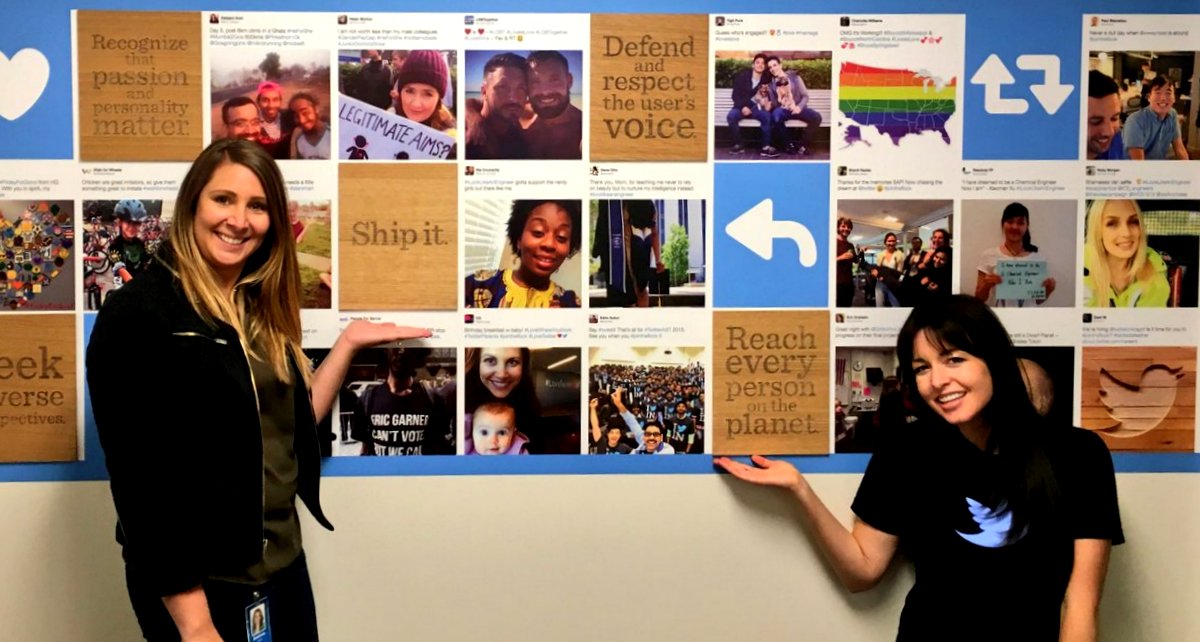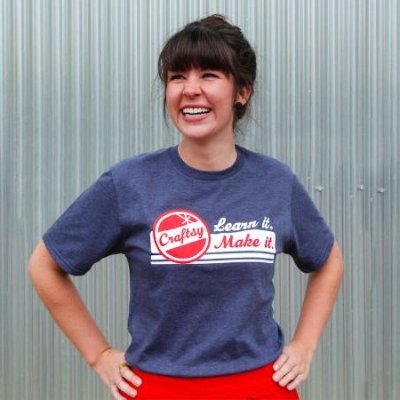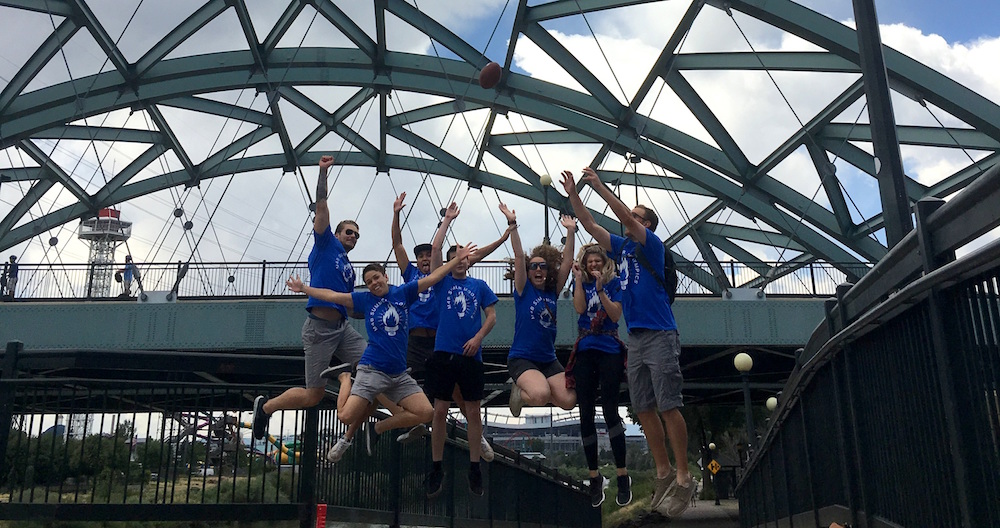With so many companies of varying sizes, it can be hard to tell what makes a tech company a startup these days. When does a startup “graduate” to a regular ol’ company? Is it when they reach a certain number of employees? If they’ve been around for a certain amount of time? Or is it just when people start thinking of them differently?
We caught up with three different companies that have made it to the “big leagues” to learn how — or if — they decided their company’s gone from startup to grown up.

 Chris Moody, VP of Data Strategy and former CEO of Gnip
Chris Moody, VP of Data Strategy and former CEO of Gnip
Did you ever consider Gnip a startup?
For sure. In the earliest days, I think by every definition of a startup we were a startup. Small group of people with an idea and a dream and not much else. When you think about the definition of a startup, there are a couple of different ways to think about it: metrics and mindset. With metrics, people have different definitions but almost everyone would agree, if you’re pre-product or pre-customers, you’re clearly in the startup world and Gnip was definitely that. Then, people start to argue, maybe, “Is a company that has X amount of revenue a startup? What about one that’s profitable?” Definitions vary a lot depending on who you talk to. Amazon’s an enormous company — it’s publicly traded — but for a very long time, it wasn’t profitable. Were they still a startup?
Do you still consider Twitter (which acquired Gnip in 2014) a startup?
Twitter, as a publically traded company with $2 billion in revenue, doesn’t fit the standard definition of a startup, but that’s where mindset comes in. Mindset is probably the more important component; does the company feel and operate like a startup? In the tech world, startups are associated with being disruptive. They have this mindset of doing something to change the world in a new and better way, of being really innovative. That’s a spirit that can stay with a company for a long time. Twitter has the startup mindset. It’s got a game-changing platform that’s changing the way the world communicates, helping people understand what’s happening right now. We’re completely committed and, in some ways, early in our journey toward being disruptive. We feel like a startup; we’re focused on change and innovation, not on how we can operate more efficiently.
How did the acquisition affect the “startup-y” aspects of the team?
It had very little impact because we felt like we were a startup being acquired by a bigger startup. We had been close partners for such a long time, it didn’t feel like we were no longer a startup. There were more resources at our disposal, and we had more influence in the world. A lot of companies get absorbed by other companies that are doing acquisitions because they haven’t figured out how to grow organically; that wasn’t the case with Twitter and Gnip. It can be hard to go from a startup mindset to a company not in that mindset.
It’s all on a spectrum. We’ve done acquisitions of three-person teams. I’m sure for those people, there’s a very clear difference in the size of the company, and it may feel less agile, but with lots of added benefits they didn’t have before. When we think about decisions of building features of Twitter, we think about how it’s going to impact future generations.
How has your involvement in the local startup community changed as Gnip grew and became part of Twitter?
The cool thing about this area is there are people moving here from New York and San Francisco, and we can refer them to other companies if they’re not a good fit. There’s cooperation between companies — we’re all in it together, committed to making Colorado an amazing place for companies. The competitive noise is so low, and cooperation is so high, it’s really special. We reap the benefits of that, too, with candidate referrals.
The journey of Gnip really is a story about being a startup in Colorado. After a company is acquired, it’s pretty normal to have a party. We had our #boulderwin party where we rented out the Boulder Theater and invited the town, saying “This is more than just Twitter and Gnip winning; it’s a win for all of Boulder.”

 Grace Hanover, Director of Talent
Grace Hanover, Director of Talent
Did you ever consider Bluprint a startup?
For much of its history, the team considered itself a startup. We’ve had this engaging question in the last year or two: “What do we call ourselves now?” There’s all this business jargon — what category do we put ourselves in? Interacting with candidates isn’t so much about how we classify ourselves, but the type of activity happening in our doors around innovation and strategic problem solving. That’s the hallmark of a tech startup, and is still true, even if we don’t fit metrics like number of employees or revenue.
Do you still consider Bluprint a startup?
We’re past the identity crisis stage of a startup — we have this really robust brand strategy we’re working from now, which provides opportunities for innovation across the company. We’re hiring a lot in our marketing team, from junior associate level through managers and SEO specialists. Earlier, someone stepping into the marketing team would’ve been in a very direct response environment. We’re rethinking that approach and taking an inspirational, narrative-based storytelling approach — it’s a fresh perspective of how to live out the brand in interactions with customers, and it gives them space to play. Now that we know who we want to be, the process of getting there is going to require fresh thinking.
When and how did you decide whether you're still a startup?
We’re trying to move away from projecting that image to the outside world. What we’ve found is things like a Pac-Man tournament or bagel Thursdays are not what are important to people. What really wins them over is the idea that the work you do here is impactful — that showing up and doing your best has an impact on the bottom line of the business. Because there’s strategic problem solving to be done, the accelerated professional growth you experience is what a lot of people look for in a startup. We have the structure, leadership and mentorship to support that.
How has your involvement in the local startup community changed as Bluprint grew?
A good example is Denver Startup Week. Our team members organized, participated in and hosted a number of different events. We don’t fit DSW’s definition of “startup” but that doesn’t stop us from participating. It’s ok to be a grey-haired voice of wisdom, but we also benefit from the energy and fresh perspective of other companies we interact with. The definition doesn’t matter, but we still want to be part of that community while being mindful of how we present ourselves to candidates.
We also participate in a leadership rotation program, pioneered by the VP of People at sovrn. They did a pilot program where a group of aspiring leaders connected with CEOs of different venture-funded companies. After the pilot, Bluprint and a dozen other startups were invited to participate in an expanded rotation program. It’s a group of inspiring internal leaders who can speak to our company and participate in a conversation about how we do the work we do, why it’s important and how we can do it better. It highlights the importance of strong connections and community.

 John Kennedy, COO
John Kennedy, COO
Was MOO ever considered a startup?
We launched in 2006 in the UK, but soon after started to grow our U.S. business. But in the very early days in London, we more than once had to recruit friends and family to help us fulfill orders as our team was not big enough to keep up at times. We now have more than 400 employees across six locations.
Do you still consider MOO a startup?
We recently turned 10. That was a huge milestone that only a fraction of new businesses reach. We also have over 400 employees, four offices, two production facilities, loyal fans throughout the world and produce more than 180 million business cards every year. So we no longer think of ourselves as startup. We’re a high-growth business, but we try to stay nimble. Along the way as we’ve grown and scaled, we’ve worked very hard to keep hold of many of the early cultural and tonal characteristics of our company culture.
How has growth changed your company culture?
Company culture is very important to us and we have worked really hard throughout the years to ensure we maintain our culture as we grow. We’re people-centric with a clear purpose, vision and values. It’s really important for us to ensure that elements of that culture are visible across all our offices and everyone feels part of something larger. But at the same time, we want each of our offices to take unique elements and establish their own local feel. This couldn’t be more true for our newest team in Denver.
When and how did you decide if you're still a startup?
I’m not sure there is ever a specific moment in time when a company stops being a startup, but I do believe our 10 year anniversary this September was a very important milestone as only a small fraction of new businesses reach that point.
How has your involvement in the local startup community changed as you grew?
Working with the local startup community has always been important to us. From turning part of our office into co-working space in our early years, to partnering with Flickr when we first launched in the U.S., to participating in community events, we have always made engaging with the startup community a priority. But, most importantly, our mission is to help businesses of all sizes look their best, and that includes the startup community, whom we serve across the globe.
Our partnership with Galvanize in Denver is the perfect example of this. Being newcomers to the Denver tech scene, it was important to us to immerse the team in the community, and Galvanize helped us do that. As we’re quickly growing in Denver, we have already moved to a new, larger space within Galvanize and are excited to continue being part of the local startup community.
Photos via featured companies and social media.
Have a tip or know of a company we should check out? Email us.






